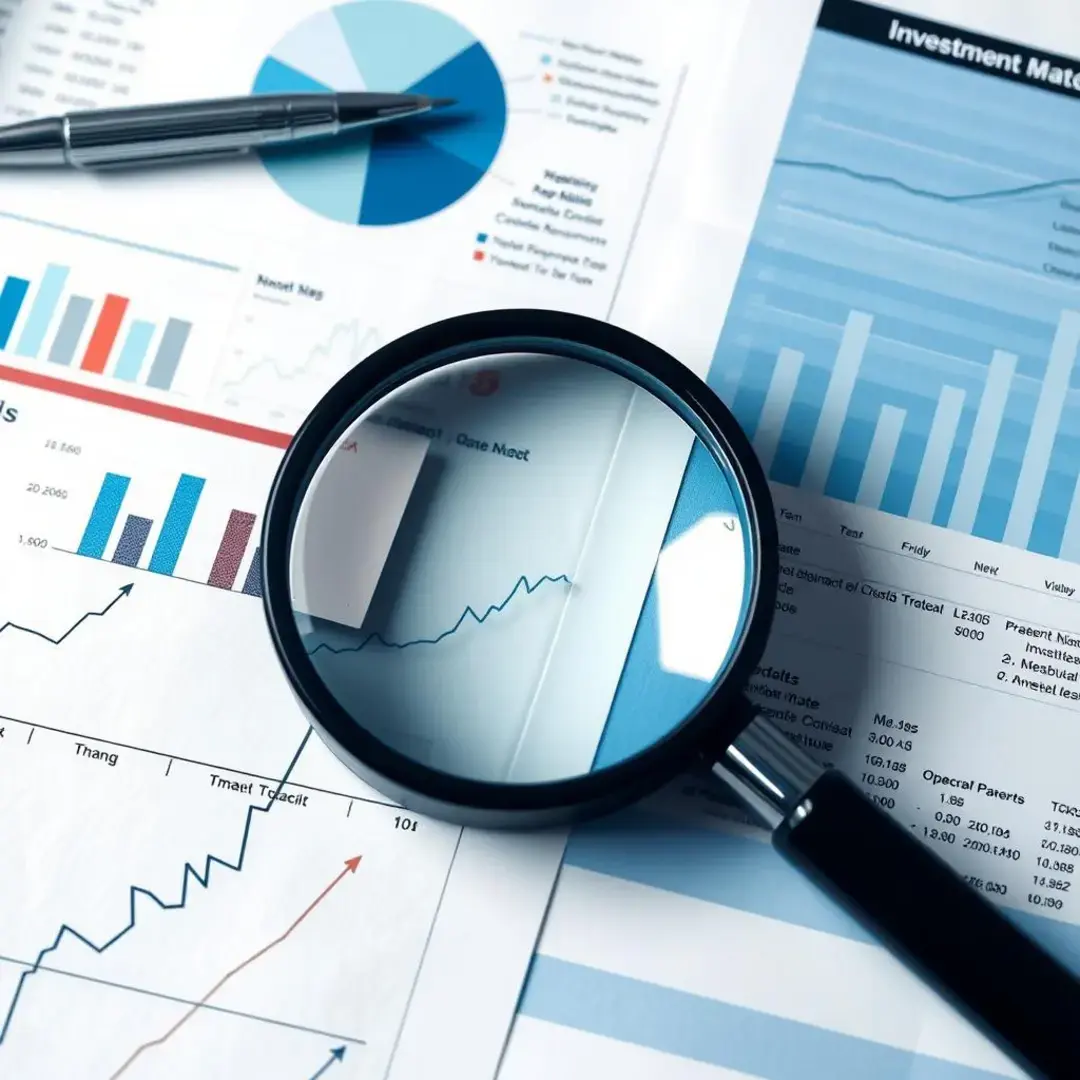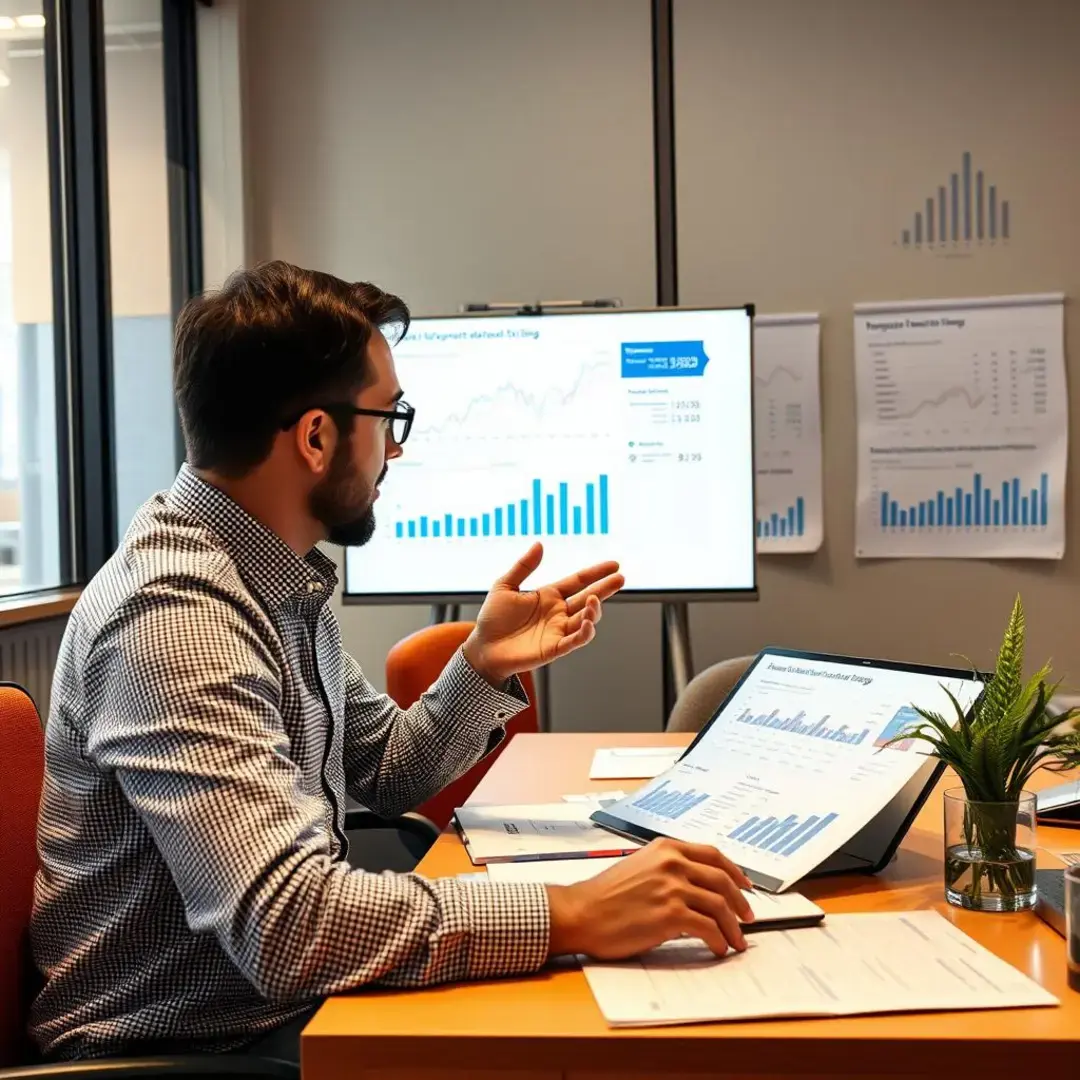Due Diligence Definition: Making Smart Investment Decisions
Understanding Due Diligence in Detail

What is Due Diligence?
Due diligence is essentially the process of thoroughly investigating a potential investment before finalizing any decision. It involves examining financial records, market trends, and operational capabilities to ensure that risks are minimized and opportunities maximized. This level of scrutiny is crucial for investors to make well-informed decisions, particularly when assessing startups where information asymmetry is often a challenge. By going beyond the basics, we can understand that due diligence is not just a checkbox process but an essential part of strategic investment planning.
Effective due diligence hinges on several key principles, such as thoroughness, accuracy, and transparency. Investors should aim to leave no stone unturned, analyzing every facet of the business or project in question. Moreover, maintaining accuracy in data collection and interpretation can shield investors from misleading representations. Transparency in communication throughout the due diligence process fosters trust and encourages partnerships built on a solid foundation.
Different Types of Due Diligence
Financial due diligence involves a meticulous examination of a company’s financial health, including its income statements, balance sheets, and cash flow statements. This aspect of due diligence is critical for understanding how funds are utilized and where potential liabilities exist. Investors should scrutinize historical financial performance and consider projections to gauge sustainability. A detailed analysis can unveil insights about profitability and operational efficiency that may not be immediately obvious.
Legal due diligence plays a vital role in identifying potential legal issues that could derail an investment. This includes reviewing contracts, leases, and compliance with regulations, which helps unveil hidden legal liabilities. Understanding the legal landscape can be complex, as it involves navigating both local and international laws. Adequate legal due diligence safeguards against unforeseen disputes and enhances the investment’s positioning in the market.
Operational due diligence is focused on evaluating the internal mechanisms of a company, including its supply chain, infrastructure, and workforce. Analyzing operational efficiencies helps investors identify how resources are managed and scales for future growth. This type of due diligence is particularly critical in the startup landscape, where operational challenges can significantly impact overall performance. Investors should ask probing questions about management practices and employee productivity to ensure alignment with business goals.
Commercial due diligence is concerned with assessing the market landscape in which a business operates. This includes analyzing customer segments, competitive positioning, and market demand, enabling investors to validate their assumptions about the startup. The aim is to gauge market viability and identify potential growth opportunities. Investors should research industry trends, customer behaviors, and competitive dynamics to make informed predictions about the startup’s future success.
Advanced Due Diligence Strategies

Predictive Analytics and Due Diligence
In today’s data-driven world, predictive analytics has become a powerful tool in the realm of due diligence. By harnessing large data sets, investors can model different scenarios and assess outcomes based on historical trends. This analytical approach allows for smarter, more forward-thinking investment strategies, reducing risk exposure. Businesses that embrace data analytics can better forecast potential challenges and opportunities.
Through predictive analytics, investors can stay ahead of emerging trends and potential risks that might affect their investments. This proactive approach not only enhances the depth of due diligence but also cultivates strategic foresight. By understanding industry shifts and pivot points, investors can adjust their strategies accordingly. Utilizing technology to monitor real-time data ensures that investors remain well-informed and prepared for the future.
Utilizing Technology for Enhanced Due Diligence
Artificial intelligence has revolutionized due diligence by introducing tools that enhance efficiency and accuracy. AI-powered solutions streamline data analysis, enabling investors to process large amounts of information quickly. These platforms can assess the credibility of financial statements, identify discrepancies, and flag potential red flags for deeper investigation. By integrating AI into the due diligence process, investors can make smarter decisions in a fraction of the time.
automation has transformed how data is collected and analyzed during due diligence. By utilizing automated systems, investors can ensure consistency and reliability in their assessments. These systems not only reduce manual effort but also minimize human errors common in traditional methodologies. As a result, investors can focus on strategic insights rather than getting bogged down in monotonous data collection tasks.
Navigating Complexities in Due Diligence

Cross-border Transactions and Due Diligence
In an increasingly globalized economy, cross-border transactions present unique challenges that demand a thorough due diligence approach. Investors must navigate different legal systems, compliance requirements, and regulations pertaining to each country involved. This complexity necessitates specialized knowledge and expertise to mitigate potential pitfalls. Engaging local legal advisors can greatly enhance understanding of the target country’s regulatory environment.
Cultural differences can significantly influence the due diligence process, especially in international contexts. Recognizing and respecting cultural nuances in communication and business practices can foster better relationships and improved information sharing. Investors must adapt their strategies to align with local customs and business norms to ensure a successful due diligence engagement. Understanding these cultural dynamics not only enhances the process but can also yield better investment outcomes.
Due Diligence in Uncertain Economic Climates
Market volatility can pose significant challenges for investors, making adaptability in due diligence strategies paramount. In uncertain economic climates, investors need to be agile and responsive to rapid changes in market conditions. This may involve adjusting financial assessments and forecasts based on newly emerging data points. A comprehensive understanding of macroeconomic indicators can inform better decision-making amidst instability.
Risk assessment is crucial in unpredictable environments, where traditional measures may fall short. Investors must develop robust frameworks that allow for scenario planning and stress testing against varying market conditions. By understanding potential disruptions and having contingency plans in place, investors can better navigate uncertainty. Proactive risk assessment builds resilience and enhances confidence in making investment decisions, even in turbulent times.
Best Practices for Advanced Due Diligence

Building a Robust Due Diligence Framework
A strong due diligence framework is essential for consistently producing reliable results. Developing customized checklists and templates can help streamline the due diligence process and ensure that all critical areas are assessed. These tools act as guides that facilitate a comprehensive review, reducing the chances of overlooking important details. Tailoring these resources according to specific investment types or industries can further enhance their effectiveness.
Clear communication protocols are vital for a successful due diligence process. Establishing open lines of communication among all parties involved ensures that information flows freely and that any concerns are promptly addressed. Regular updates and feedback sessions can help maintain alignment and transparency throughout the process. Effective communication cultivates trust and collaboration, which are fundamental for successful investment outcomes.
Staying Ahead of the Curve
The landscape of due diligence is ever-evolving, making it critical for investors to stay informed about regulatory changes and industry best practices. Subscribing to updates from regulatory bodies and participating in industry forums can provide valuable insights. Staying abreast of changing standards ensures that due diligence practices remain compliant and relevant. This proactive approach to knowledge can empower investors to make decisions guided by the latest information.
Finally, continuous improvement is key to a successful due diligence process. Regularly evaluating and refining due diligence frameworks, methodologies, and tools can yield significant enhancements in effectiveness. Gathering feedback from all stakeholders involved can provide valuable insights into possible improvements. By fostering a culture of learning and adaptability, investors can consistently enhance their due diligence practices, ultimately leading to more informed and beneficial investment decisions.












